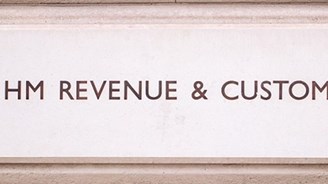Making Tax Digital – a timely round up and some new relaxations

This will first affect monthly filers, due to submit their return to 30 April 2019 by 7 June 2019 (for those who pay electronically).
Quarterly filers with a 1 April – 30 June 2019 VAT period will need to be signed up and ready by their due submission date of 7 August 2019 (for those who pay electronically).
Careful consideration needs to be given to when a business should sign up for MTD and there is more information about deadlines and restrictions here.
Thoughts have naturally been turning to which returns and types of taxation will be digitalised next but some welcome news was received at the 2019 Spring Statement. It has been confirmed that the government will not be mandating MTD for any new taxes or businesses in 2020. In all likelihood this means that April 2021 would be the earliest mandatory start date for income tax returns to go digital (and possibly quarterly) with an even later start date for corporation tax returns.
So, returning our focus to MTD for VAT, and as reported in our last blog on the topic, the main VAT Notice surrounding MTD is Notice 700/22. This Notice received an important update on 3 May 2019 and now includes some additional digital record-keeping relaxations for affected businesses. The update also builds on guidance around:
- The turnover test;
- Following the rules as an exempt business (i.e. voluntary sign up);
- Digital links;
- Supplies made by third party agents; and
- Charity fundraising events.
The new digital record-keeping relaxations are likely to be of interest to many businesses as they affect routine transactions around paying suppliers based on statement information and, also, use of petty cash in the business. The relevant extracts from Notice 700/22 are shown below.
Use of supplier statements (4.3.3.1)
“Some businesses record the value of each supply from a supplier statement instead of individual invoices. This may occur particularly where a business receives a large number of invoices from the same source. In HMRC’s view, it is best practice to record digitally the individual supplies as this means less risk of invoices either being missed completely or being entered twice - once as an invoice, and once as part of the statement. There is also less risk of the wrong rate of VAT being applied.
On the other hand, HMRC accepts there may be additional work for a business in capturing individual supplies digitally and this in itself could lead to data entry errors. Therefore, HMRC can accept the recording of totals from a supplier statement where all the supplies on the statement relate to the same VAT period and the total VAT charged at each rate is shown. If you choose to do this, you must also cross reference all supplies on the supplier statement to invoices received, but this can be done outside of your digital records.
The following rule has the force of law:
Where a supplier issues a statement for a period you may record the totals from the supplier statement (rather than the individual invoices) provided all supplies on the statement are to be included on the same return and the total VAT charged at each rate is shown.”
Petty cash transactions (4.3.3.2)
“Petty cash is traditionally a small amount of cash on hand that covers day to day expenses of a business, such as buying a pint of milk. In some businesses it can be used to describe costs that are not attributable to an individual account in their records. Requiring businesses to record each of these transactions in digital records could be an unreasonable administrative burden for businesses. Therefore, HMRC will accept that a number of petty cash transactions can be recorded as a single purchase in the digital records of the business, subject to a monetary limit.
The following rule has the force of law:
Where a business uses petty cash to pay for small value items, these do not need to be individually recorded in the digital records. The business can record the total value and the total input tax allowable. This applies to individual purchases with a VAT-inclusive value below £50 and the total value of petty cash transactions recorded in this way cannot exceed a VAT-inclusive value of £500 per entry.”
For more information on the practical implementation of Making Tax Digital for VAT, please see our on-demand webinar “Making Tax Digital – Where are we now”.



